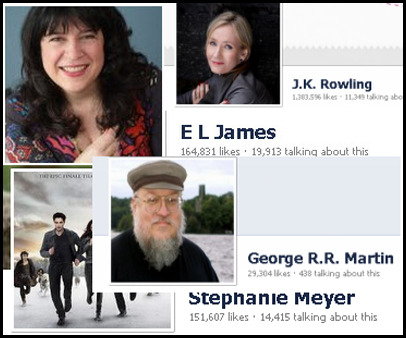 With more than 1 billion users registered with Facebook, when authors are considering social media to promote their books, it’s often the first Social Media Channel they explore.
With more than 1 billion users registered with Facebook, when authors are considering social media to promote their books, it’s often the first Social Media Channel they explore.
Publishers urge authors to get acquainted with Facebook, too.
In fact, I recently overheard (at the gym locker room, believe it or not), that one guy who just landed a book deal has to maintain a Facebook and Twitter presence for the book as part of the deal.
So, yeah, Facebook is a big thing for authors… or so we think.
If you’re trying to start a Facebook Page, the experience is a lot different than if you’re just a writer trying to get more followers on Twitter.
Why’s that? Let’s take a look, then see how five famous authors are using Facebook Pages.
My biased view is that Facebook is a big waste of time for authors.
I’m not saying it’s unnecessary, but I suspect that, for the majority of writers out there, Facebook may not be that useful of a tool.
Yes, if you’re a big-time author, it might be good… but I’m still not sure.
I got curious enough to take a look at five famous authors “on” Facebook :
1. JK Rowling (Harry Potter)
J.K. Rowling doesn’t personally control the Page. It was made in August, right around when her adult novel, The Casual Vacancy, came out.
Coincidence? Sounds riddikulous to me.
What’s on it
- An interminable pattern of tiresome book promotion
- A barrage of interviews, reviews, and news about The Casual Vacancy
- A cold silence toward fans by the social media team that controls the Page
What it’s doing
Obviously, the goal of the J.K. Rowling Facebook Page was to differentiate the author from the Harry Potter series and establish her as a separate figure who apparently only talks about The Casual Vacancy and has no other opinions, thoughts, or feelings.
2. George R.R. Martin (A Game of Thrones)
What he uses it for
Nothing. In fact, the owner of the Page recently posted to explain to fans that George R.R. Martin doesn’t use any social media.
Why? He doesn’t have time.
Imagine that.
What’s on it
- A maze of confused posts from fans asking about the next book that are doomed to go unanswered
- Occasional videos and articles about the series
- An author photo that was haplessly ripped from some other website
What it’s doing
Serving as a place for people to proclaim that they “like” George R.R. Martin.
3. Suzanne Collins (The Hunger Games)
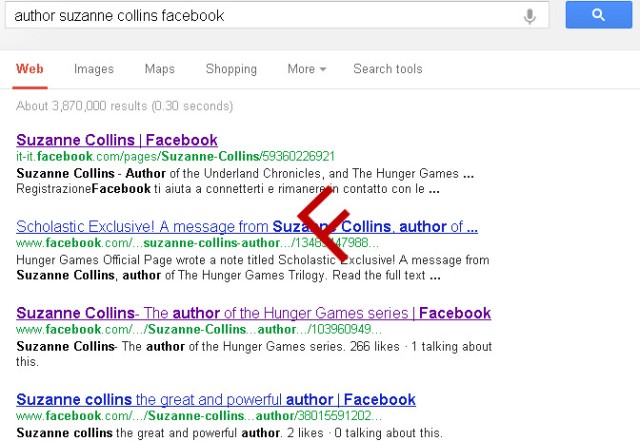
What she uses it for
Nothing.
What’s on it
Nothing, because the link to the Facebook Page is broken.
What it’s doing
Reinforcing my sneaking suspicion that authors shouldn’t have Facebook Pages.
4. Stephanie Meyer (Twilight)
What she uses it for
This is an interactive Facebook Page with lots of contests (some of which are in flagrant violation of Facebook’s terms of service) and things that showcase Meyers’ popular Twilight series.
What’s on it
- An endless stream of contests for different prizes that encourage fans to interact with the Page
- Pictures of the Twilight movies
- Clips from the Twilight movies
- Just about no mention of Stephanie Meyer, the author
5. E.L. James (50 Shades of Gray)
What she uses it for
A publisher-maintained Page, this one is really a step above (if not an entire staircase) the rest of the Facebook Pages here.
It’s a place where fans can learn more about the books and the author.
What’s on it
- Interviews & news updates
- Lots of photos with memorable one-liners from the 50 Shades of Gray series
- Photo albums of James traveling across the country
- Pictures of fictional floor plans, car collections, and other things that deepen the world of James’ series
What this means
We can take away three big things from this totally inaccurate case study:
1. Famous authors aren’t using Facebook themselves
2. Publishers have wildly different levels of proficiency when it comes to Facebook
3. Authors who essentially become their books have more fans and more interactive material
I gave the E.L. James Facebook Page an “A-,” because the Page fully blends author and book. Stephanie Meyers’ Page does this too, with less success.
However, no Pages seemed to actually respond to Facebook comments or get some input from the authors themselves.
That makes these Facebook Pages very similar to fan websites, except that they’re on an unpredictable, third-party platform that keeps making it harder for Facebook posts to get seen.
The final tally
In every case, the Facebook Pages for the series that these authors wrote are explosively more popular than the author pages.
Also, we can observe that James’ publisher has really worked hard to kick this trend, seeing as that’s the closest count by far.
My conclusion?
Before you start a Facebook Page, think about what you’re going to put on it and how you’re going to use it.
Like we saw in my Twitter interview about getting more followers, you can’t just use Facebook for self-promotion.
If you do that, no one will comment or share the content. If no one comments or shares, Facebook makes it nearly impossible for your Page to be seen by fans, because their algorithm, EdgeRank, doesn’t think the content you post is popular.
At the end of the day, ask yourself:
Is it better to have a Facebook Page for my book or a Facebook Page for me?
In most cases, I think the answer is your book.
Your book should be your brand. People are more likely to look up the book, anyway.
I’ll take it a step further.
My conclusion is that authors shouldn’t waste their time with Facebook until they’ve established an audience.
Long before Facebook, start a Twitter account and a blog. Create content and share it with your peers.
The breakdown
- Photos are a big part of the Facebook experience
- Family and friends are the main reason that people use Facebook
- Books can’t be the only thing promoted on a Facebook Page: you have to use “peripheral topics” that are going to also interest your audience
- Unpredictable is a good word for Facebook– just this year, they’ve released major interface and feature changes, some of which are to the detriment of Page owners
- Publishers need to get their social media strategies together: there is a huge opportunity for savvy publicists who know how to make a good Facebook Page, but it doesn’t look like they’re trying very hard
If you’re interested in creating an online author platform, check out my free guide about starting a blog that helps get readers for your creative work!

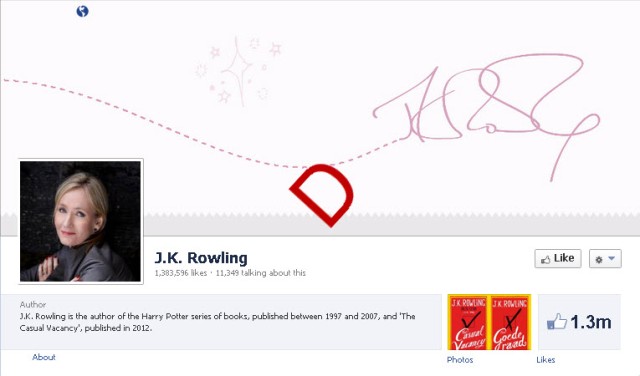

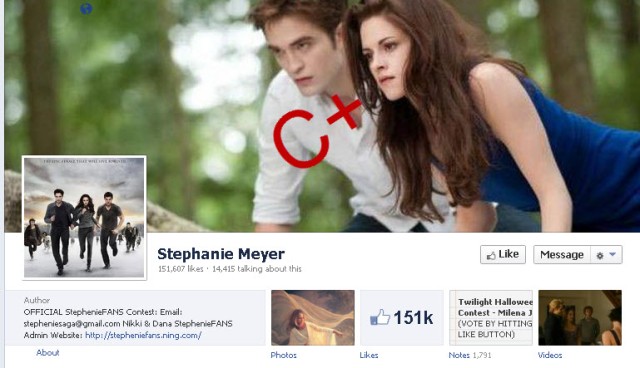

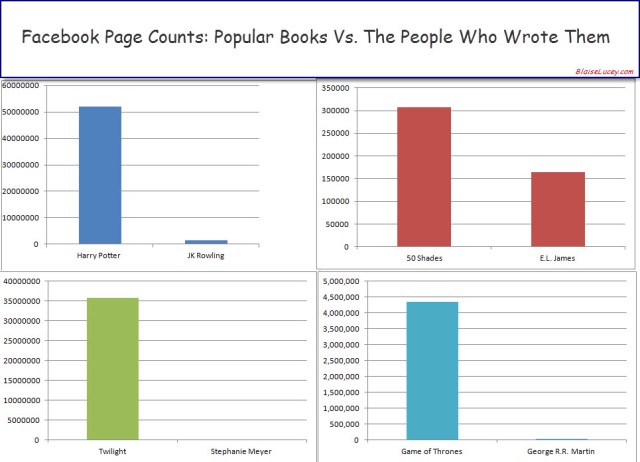
Leave a comment